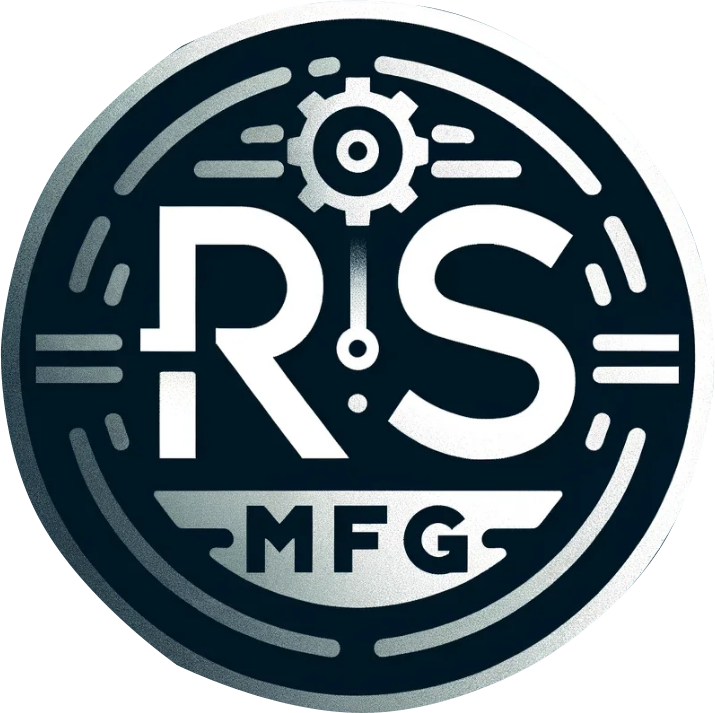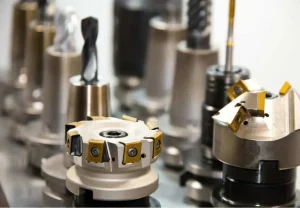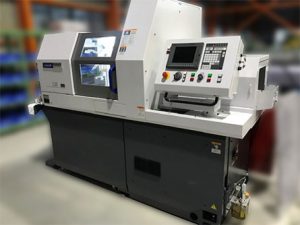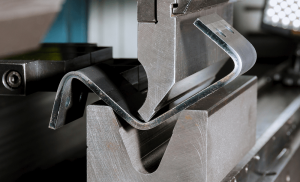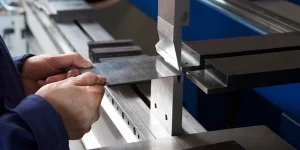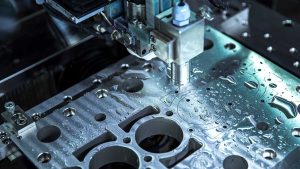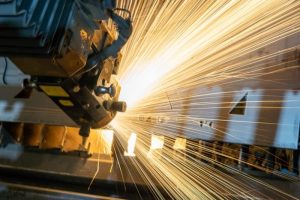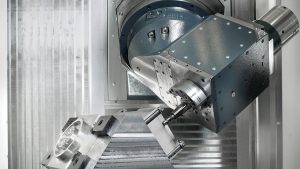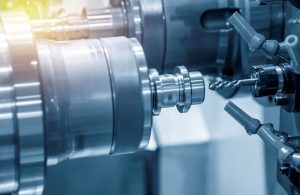CNC machining enhances medical manufacturing by increasing precision and enabling custom device production, though it faces challenges like high costs and strict regulations.
Advances in Production
Precision and Customization
The biggest use-case is the ability to make some very tiny, but also quite complex shapes as needed for medical implants or even surgical instruments. With a true capability of holding dimensions as tight as 0.0005 inches, one of the most pressing needs solved by CNC machining services is in keeping engineered components dimensionally precise within orthopedic implants, since from patient to patient compatibility considerations factor strictly according to exact legislative specifications for precision parts. This accuracy helps to ensure a “perfect fit” for the implants, which in turn eliminates rejection while enhancing surgical results.
Complex geometries/multi-axis machining
The machining of parts with intricate geometry is expanded on due to the use of multi-axis CNC machines that permit manufacturing what seemed impossible or too expensive in production. This functionality is especially useful for developing custom prosthetics that can fit the anatomy of specific patients. A case study published in 2019 by the Mayo Clinic found that tailored-manufacturing of prosthetics via CNC machining reduced surgical time commitment and improved patient outcomes due to higher matting quality implants.
Expandable to Additive Manufacturing
Integration of CNC with Additive Manufacturing: This is a one more big breakthrough. Using a combination of CNC machining and 3D printing, this hybrid model allows for quicker material flexibility with additive manufacturing and the accuracy needed for tools & implants through precision machining. Dental implants Beginnings of bio-printing and cranial plates are already made by significant om pidtinG learned a base 3D printed rough structure followed by CNC milling to exact surface specifications. The pipeline not only accelerates production, but also enables fast prototyping with bespoke devices.
Production Volume Flexibility
CNC machining is suitable for production volume, where it allows both mass and small batch production without quality loss. This flexibility allows medical manufacturers to keep the processes efficient and also cater to small specialized markets or individual patient cases. This allows manufacturers to move faster when new market requirements emerge or medical practices change making total retooling cost and manufacturing downtime a significant aim for other industrialized regions.
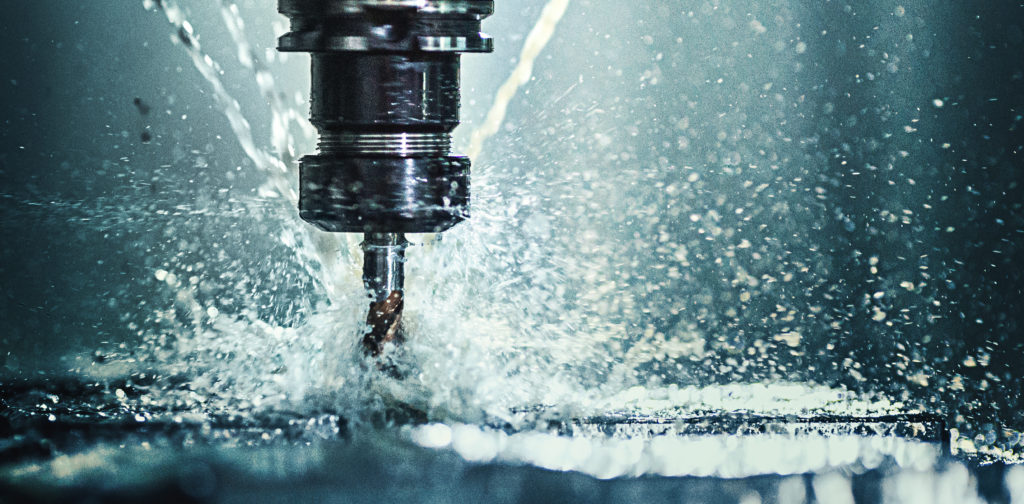
Advantages of CNC Machining
Precision and Consistency
CNC machining offers unparalleled precision – absolutely crucial in medical manufacturing, where a slight error could mean disastrous effects. CNC precision is controlled to within 0.0005 inches, which makes a huge difference when components need that kind of micro-precision qualities for many medical items such as cardiovascular stents and neurovascularers – impossible from additive manufacturing machines! Extreme precision is necessary for these components, as they will be operating inside the human body delivering life-saving care but also carry considerable risks of complications. This is especially promising given the reliable level of quality available through CNC machining, making it much easier to meet some ever higher-stakes needs in medical applications where products must comply with strict regulatory guidelines before they can achieve safety and efficacy standards.
Customization and Scalability
SummaryCNC machining can accommodate both high mix and low volume customization as well enables mass production of standardized parts using specialized tooling. This is important in areas such as orthopaedics, where metal implants like hip or knee replacements need to be customised to meet the individual anatomical needs of patients. Surgeons, for instance, can have implants that are custom-built to match the exact physical make-up of their patients; something which dramatically increases outcomes on operations. For example, scalpels and forceps are both great examples of other items that can be easily produced in large quantities by CNC machinery for a high volume production lineAlternatively owing to the general-use nature of many medical tools so providing says typical vital function they play is equally as versatile.
Material Versatility
This makes CNC machining one of the most advantageous for a wide range variety of materials especially in medical. Processing everything from titanium and stainless steel to softer materials like silicone and PEEK (used for medical devices due to its durability/biocompatibility). TITANIUM is also used at length since it strong and human tissue compatible. With the ability of shaping these materials precisely, CNC machines help medical device designers to get the perfect material for their applications; free from any concerns related towards manufacturing.
Speed and Efficiency
In the fast moving medical space, being able to quickly prototype and iterate on designs is key. CNC machining enables rapid development by enabling manufacturing of prototypes for testing and iteration based on actual use. Such speed in prototyping is essential for any new innovation to happen in Medical Technology which enables a manufacturer or designer to modify their designs quickly and efficiently before producing final products. A CNC-machined prototype, for example, can be completed in as few days instead of weeks compared to traditional manufacturing methods.
Cost-Effectiveness
Although the initial outlay for CNC machines is steep, they end up saving you money in the longer run. CNC Machining also decreases waste through exact material removal – an important consideration in fields using high-cost materials like medical (or other scientific). Moreover, since the CNC machining is an automated process as much less labor cost along with reduced human error which could be very expensive in terms of rework or a product recall. CNC machining reduces error and increases yield which helps healthcare providers save funds as production will be largely simplified using the process.
CNC in Action
Prosthetic Limbs
For amputees, CNC machining has been revolutionary in the field of prosthetics; it allows for highly personalized prosthetic limbs which can drastically improve quality of life. One example is a unique prosthetic leg designed for an American war veteran who had lost one of the limbs. The prosthesis was machined on CNC machines and corresponds to his individual body dynamics characteristics. This meant they would take measurements of the dimensions between his one remaining limb and stump to build a comfortable, useful prosthetic. These measurements were then turned into intricate 3D models via custom-developed software, which the CNC machine utilized to literally carve out each of piece prosthetic from high-quality titanium chosen for its light weight and strength.
Impact on Surgical Tools
Precision components such as intricate and reliable surgical tools take advantage of CNC machining. One of the latest advancements involved creating laparoscopic surgery tools that have made it possible to perform intricate procedures through minor incisions. The tools were crafted in medical grade stainless steel to withstand the extensive sterilization protocols used in hospital and laboratory settings. Due to the CNC process, fine detail could be included on tools such as hand imbued tactile grips which allowed for superior control and reduced levels of fatigue throughout lengthy surgical procedures.
DENTAL IMPLANTS
The dental industry is a large beneficiary for CNC machining, making implants and crowns that require precise accuracy. An illustrative example is the production of a complete series for an edentulous patient that was in need of comprehensive restorative work. These implants were collaborative designed from a 3D scan of the patient’s jaw and teeth so that they would fit perfectly as well as look ethically natural. Each implant was milled on a CNC machine from a block of titanium, which is biocompatible with human bone and tissues to allow for shorter healing times rather than the months-long native friction-fit integration required around every living jawbone tooth.
Cardiovascular Devices Product
In cardiovascular medicine, CNC machining is a critical step in the manufacturing of custom heart valves and stents. In this case, the defibrillator is a life-saving component and must be in very close tolerances. When arteries are too uniquely configured for standard stents to serve adequately), and custom-made, individualized aorta cuffs that require perfect hose-like dimensions. CNC machining is used to produce these stents, which are cut from cobalt-chromium alloys – some of the strongest and most biocompatible materials known.
Custom Orthopedic Implants
The orthopedic field is another space where CNC machining has played a big part in although not to the scale of metal implants – yet. In one prominent example, a customized hip replacement needed to be made for an individual with osteomalacia gear bone dystrophy. The individuals hip socket was shaped that made traditional implants not applicable for use. This not only allowed for a custom implant to be made that exactly replicated the exact anatomy of the patient’s hip through CNC machining but also contributed in reduced recovery time and post-surgery mobility.
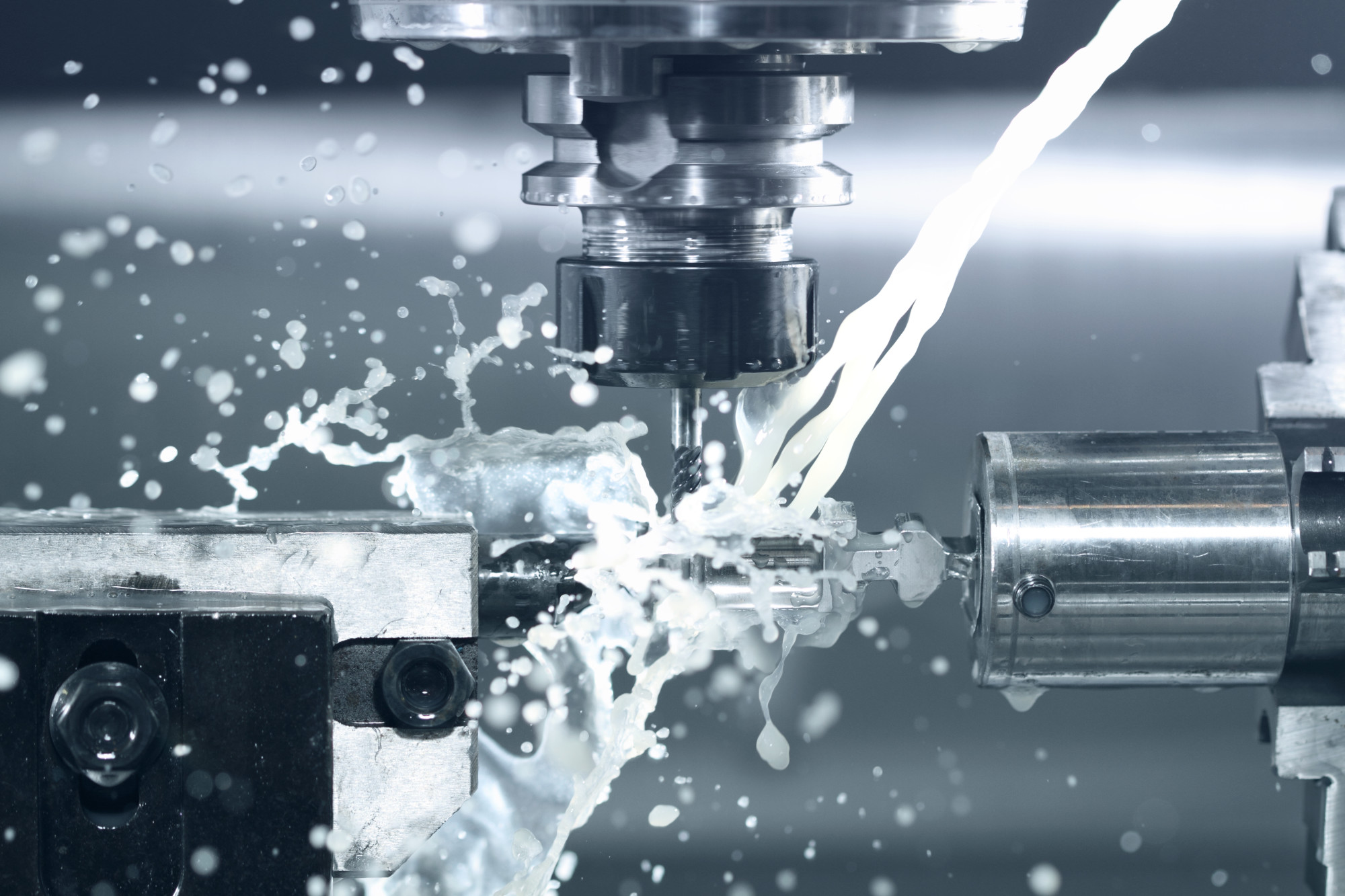
Challenges and Considerations
Biocompatibility and Material of Interest
Selecting the perfect material for CNC machining in medical applications will come down to process of biocompability, durability and conformancy with regulatory standards. Injection molding, for example, can produce titanium devices of very high strength and biocompatibility with human tissue–desirable traits in implants–but the process is expensive. Manufacturers have to weigh these properties against the needs of a device, as in how long it will last or whether and for how long it might make contact with tissue. It has to be ensured that no allergic reactions will occur after implant and all materials have current FDA approvals.
Precision and Error Margins
Known for its precision, this is quite a scary statement in the medical world where CNC machining means higher stakes with even minor deviations causing major problems. For example, in the production of cardiovascular devices variations less than 0.001 inches can make all the difference!! This high level of accuracy means that CNC machines need regular calibration and maintenance, which often can be expensive and time consuming. Furthermore, the CNC machines programming that is executed must be carefully monitored to prevent damage from broken parts.
Maintain Sterilization and Hygiene Levels
Medical Devices That Are CNC MachinedNeed of Rigid Sterilizing for free from Pathogens Before Putting To Medical Service This requirement shapes both design and manufacturing, as all products should be able to survive high temperatures & aggressive chemicals used for sterilization. Example of one such limitation is deformation or breaking down of certain materials like some plastics and composites in this conditions, which would also rule them out from being used for medical applications. These factors are important for manufacturers to take into account when designing and machining medical components, ensuring that these parts can still perform their intended purposes even after they have been sterilized.
Cost and Accessibility
Some medical manufacturers, particularly smaller start-ups or those in developing regions, may struggle with the costs of CNC machining technology and consequent expertise required to operate and maintain such machines. This results in costs of end products which could be too high for low-income areas making advanced medical technologies less accessible, all the while requiring skilled technicians whose training is costly and requires time. This economic threshold can create a lag in the implementation of new medical innovations where they are needed most.
Regulatory Compliance
The healthcare industry, predominantly medical device manufacturing is one of the most regulated industries and there are a number regulations that CNC machining have to abide by. This long (and resource-intensive) process is actually the result of significant testing and approval requirements that new devices must satisfy before coming to market. While safety and efficacy regulations that make it through a product design review are good for business, compliance also mandates the latest information on current laws or standards must be collected consistently-a daunting task economically.
